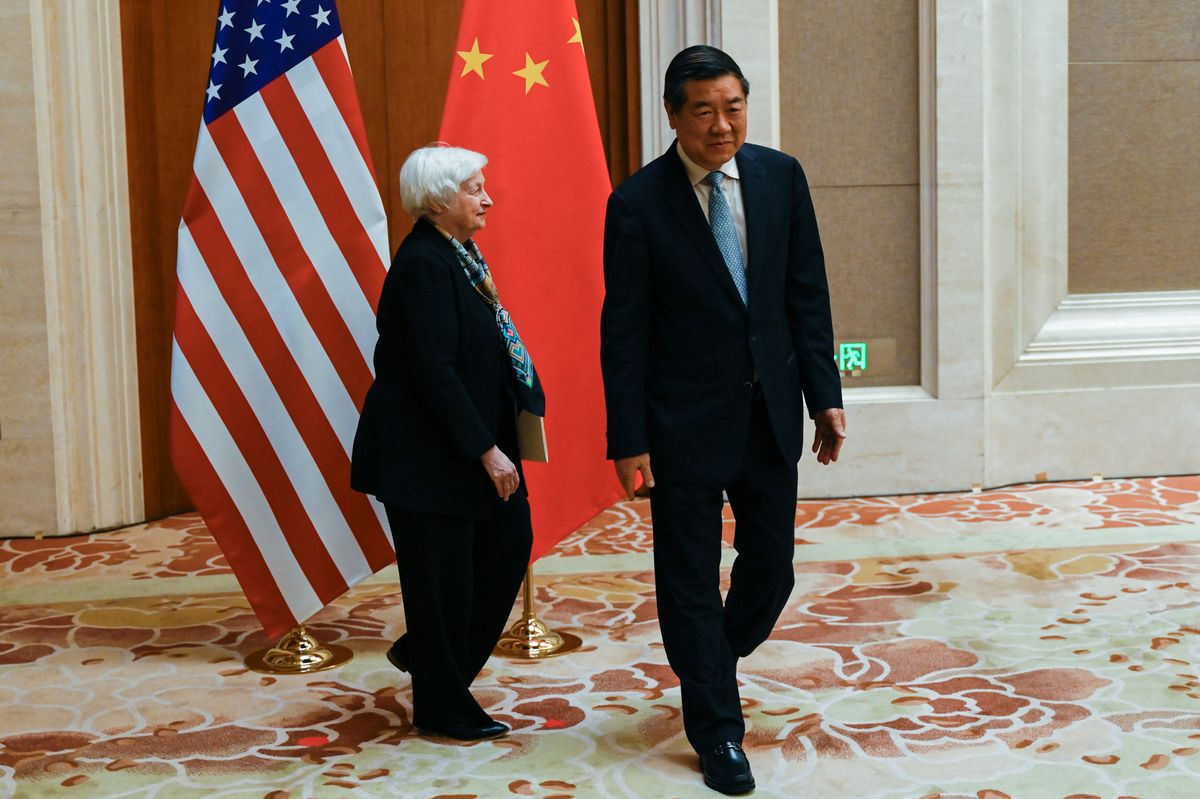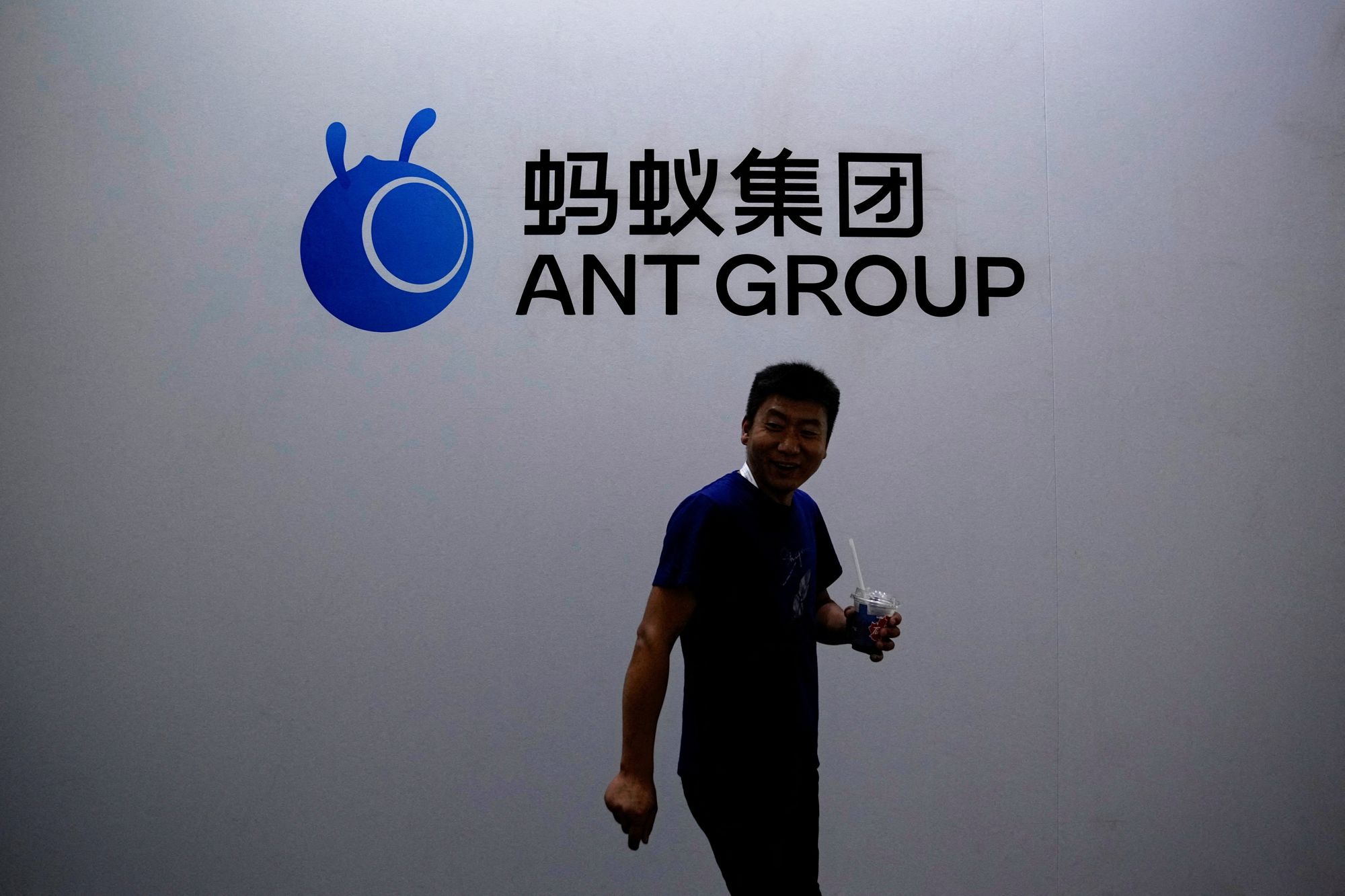From Yellen's trip to China to a steep library late fee – Here are today's Headlines
In April, US Treasury Secretary Janet Yellen made it clear that it's crucial to keep ties with China intact.

A few minutes every morning is all you need.
Stay up to date on the world's Headlines and Human Stories. It's fun, it's factual, it's fluff-free.
To start off, we're looking into:
Yellen's China trip
The backstory: In April, US Treasury Secretary Janet Yellen made it clear that it's crucial to keep ties with China intact. She warned against "decoupling" and highlighted the need to address human rights concerns and trade policies. Then, in June, she chatted with some top American CEOs, emphasizing the importance of working with China on global challenges.
The development: Yellen just wrapped up a trip to China on Sunday. The discussions started with some heavy hitters in China's economic policy, Liu He and Yi Gang. They had some "informal and substantive" talks, covering the global economic outlook and how things are shaping up economically in both countries.
Then, on Friday, Yellen sat down with Chinese Premier Li Qiang for a little over an hour. She made it clear that she doesn't see the competition between the US and China as a "winner-take-all" situation. Click the link here for more on her trip.
Ant Group’s billion-yuan fine

The backstory: It's been a rollercoaster ride for China's largest fintech company, Ant Group, and its founder, Jack Ma. In November 2020, the company was gearing up for an IPO worth US$37 billion. But just two days before the much-anticipated launch, everything came to a halt. Regulators in China launched a widespread crackdown on various sectors, including big tech. They were concerned about some of Ant Group’s anti-competitive practices. As a result, the company was instructed to restructure its business and adhere to the same rules as traditional banks.
The development: Now, China's central bank has taken action to wrap up the investigations, imposing big fines on several fintech companies, including Ant Group and Tencent. This move represents a finale of the regulatory crackdown, signaling a shift towards "normalized management" of the industry. Click the link here for more.
Asia’s moves in crypto regulation

The backstory: Crypto platforms and exchanges have had a pretty tough year or so, with the collapse of exchanges like FTX, and the wipeout of Terra-Luna. These mishaps led to billions of dollars of losses for millions of people, causing bankruptcies to other businesses. This year, the US Securities and Exchange Commission (SEC) began cracking down on the crypto industry. In the past couple of months, it’s focused on exchanges like Binance and Coinbase, suing them for allegedly breaking regulations. The SEC is sending the message that the industry should follow existing US regulations on securities. On the other hand, many major crypto players are calling for new regulations, saying that crypto shouldn’t be lumped in the same category as traditional securities, like stocks and bonds.
The development: Over the last couple of months, the biggest crypto hubs in South Asia have started building out their own crypto industry regulations, making them more attractive for exchanges looking for clarity. Click the link here for more.
To end, we'll look into:
Are we at risk of global crop failure?

Small-scale, location-specific crop failure is nothing new. It can happen for a few reasons – extreme weather events, pests or diseases spreading across fields, poor soil quality, etc. But what about massive crop failure that affects many types of plants in different parts of the world simultaneously? That’s what’s known as “synchronized global crop failure,” and we could be at increased risk of it.
Human-driven climate change puts us in danger of a lot of environmental-related trouble. But researchers might’ve been underestimating the effect it could have on food security. Its impact on global crop yields could be kind of a big deal. According to a new study published in Nature Communications, the risk of reduced crop yields in major crop-producing areas has been massively underestimated in climate projections. Click the link here for more from this study.
In other news ...
⛈Massive rainfall in Delhi: Delhi, India, experienced massive rainfall on Saturday, causing waterlogged roads, uprooted trees and other damages. The rainfall was the highest the city has seen in a single day in 20 years, with the Safdarjung Observatory recording 126.1 millimeters of rainfall between 8:30 a.m. and 5:30 p.m.
🚓Turkey returns Azov Defender prisoners to Ukraine: Last September, five POW Ukrainian commanders who defended the Azovstal steel plant in Mariupol against Russia were part of a prisoner exchange between Russia and Ukraine, handed over on the condition that they stay in Turkey for the rest of the war. Over the weekend, Turkey returned these men to Ukraine, a move that Russia is condemning as violating the original prisoner exchange agreement.
📄Biden on Ukraine’s NATO membership: With NATO being a major ally to Ukraine in the war, some NATO members are ready to bring Ukraine on board as an official part of the bloc. Other member-states aren’t so sure, with the war making the whole process more complicated. During a TV interview on Sunday, US President Biden said that he doesn’t think onboarding Ukraine into NATO is a good idea until there’s peace between Ukraine and Russia. “If the war is going on, then we’re all in war,” he said.
📩Presidential elections in Uzbekistan: Recently, Uzbekistan changed its constitution to extend the presidential term from five to seven years and made it so the president can serve four terms instead of two. Two terms deep into his presidency already, President Shavkat Mirziyoyev decided to run for a third term now, with elections being held over the weekend. Official polling results are due Monday, but things are looking promising for Mirziyoyev.
☢North Korea weighs in on Fukushima radioactive waste plan: Recently, Japan announced plans to release treated, diluted radioactive wastewater from the Fukushima power plant into the ocean. They tested the plan and got the go-ahead on safety from the UN’s International Atomic Energy Agency, but it’s still getting pushback from environmental groups and other countries. On Sunday, North Korea pushed for the international community to stop Japan from going through with this plan, calling it “antihumanitarian.”
💣EU envoy surveys Jenin after attacks: As tensions have gotten higher between Israel and Palestine, Israel has been conducting more intense raids in the West Bank. Last week, Israel’s latest raid, on the city of Jenin, made headlines as its largest West Bank raid in 20 years. On Saturday, an EU envoy condemned Israel for using excessive force in the raid after touring the damage in Jenin.
🧪US destroys final chemical weapons: Back in the 90s, almost 200 countries came together to sign the Chemical Weapons Convention, which bans the possession, production and use of chemical weapons in war. The US was the last country with any declared chemical weapon reserves, and it finally destroyed the last of those weapons last Friday. Now, the world is largely free of these weapons.

💻ChatGPT launches code interpreter: ChatGPT has been praised for its ability to build useable code. Now, if you subscribe to the US$20-per-month ChatGPT Plus service, you can access the OpenAI Code Interpreter tool. Released last Friday, this tool can run code, analyze uploaded files, evaluate data, create charts, edit files and solve math problems.
💊New Alzheimer’s drug gives new hope: Millions of people suffer from Alzheimer’s disease, which drives mental decline, usually in the elderly. A drug called Leqembi, developed by Japanese pharma company Eisai and US drugmaker Biogen, targets a type of protein in the brain that’s believed to be an underlying cause of the disease, slowing down cognitive decline for patients in the early stages of Alzheimer’s. After years of development and long trials, the drug now has FDA approval, which means that we could soon be seeing more access to the treatment all over the world.
📕One hell of a late fee: A public library in Massachusetts has been missing the book “An Elementary Treatise on Electricity” by James Clerk Maxwell for 119 years. After somehow ending up in another state entirely, another librarian found it and returned it to its original collection. With a US$0.05 late fee per day, one for 119 years would be over US$2,100, but this library’s late fee limit is US$2.

Enjoying our TMS Headlines?
Forward it to a friend! After all, sharing is caring.
Anything else? Hit reply to send us feedback or say hello. We don't bite!
Written and put together by Joey Fung, Vanessa Wolosz, Caleb Moll and Christine Dulion




Comments ()